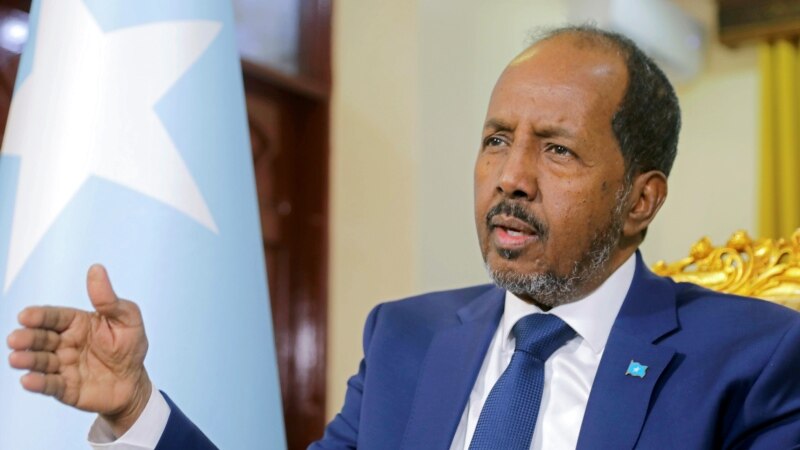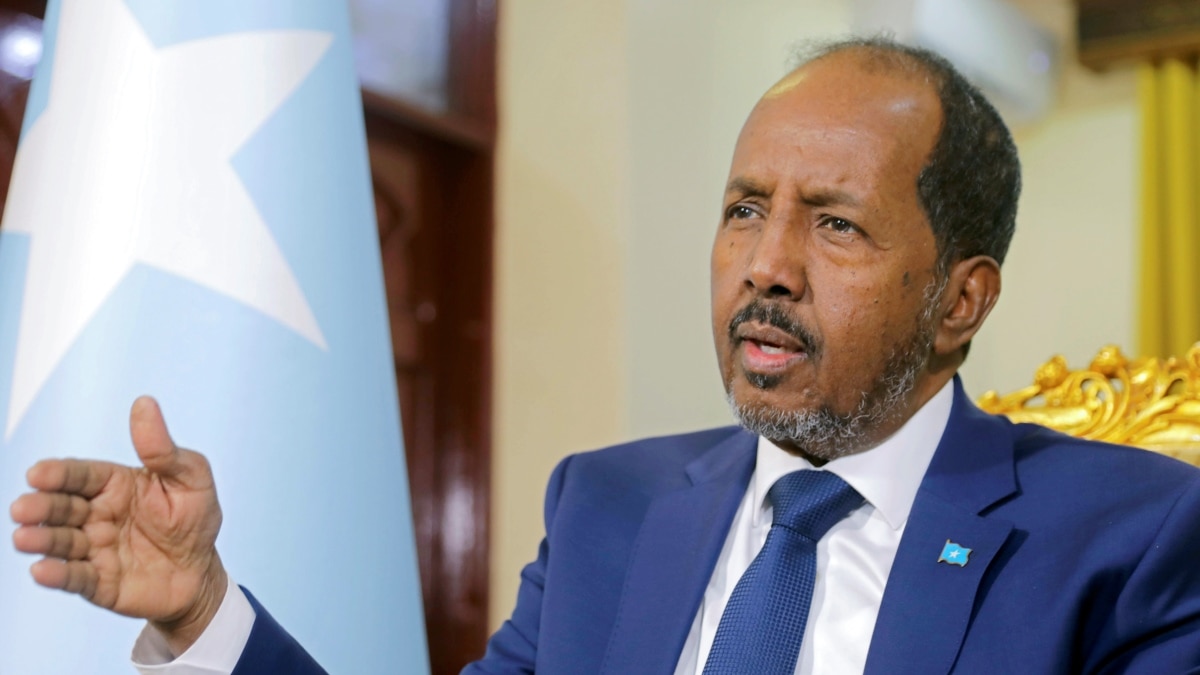This website uses cookies so that we can provide you with the best user experience possible. Cookie information is stored in your browser and performs functions such as recognising you when you return to our website and helping our team to understand which sections of the website you find most interesting and useful.


The leaders of Eritrea and Somalia have announced the signing of an agreement covering defense, security, diplomatic and political cooperation.
The agreement, finalized by Eritrean President Isaias Afwerki and Somali President Hassan Sheikh Mohamud, was reached following a four-day visit to Asmara by the new Somalia leader.
In a seven-point memorandum of understanding released Tuesday, the two leaders said they have agreed to enhance defense and security cooperation to safeguard peace, stability and security. They also have agreed to strengthen diplomatic and political cooperation, to protect and advance their national interests, and to promote relations between their two peoples, they said.
Afwerki and Mohamud said the memorandum they signed is based on historical and fraternal ties and common interests they share and on recognition that the successful fight against terrorism in Somalia is a “prerequisite for peace, stability and security, not only in Somalia but in the Horn of Africa.”
Eritrea has been training thousands of Somalia forces for nearly three years. Most of the military has received regular and specialized training, including the naval force, as well as mechanized units.
VOA Somali has reported the number of Somali troops trained in Eritrea at 5,167, a figure later confirmed by former president of Somalia Mohamed Abdullahi Farmaajo, who sent the troops to Eritrea.
The first wave of Somali soldiers was flown from Mogadishu to Eritrea on Aug. 19, 2019. There were second and third waves in February and June 2020, respectively.
The training of the soldiers was a clandestine operation hidden from the public and the media. The program was criticized by Somali parents of the soldiers and opposition politicians. It attracted controversy after unverified media reports alleged their participation in the conflict in Tigray, a claim strongly denied by the previous Somali government. VOA Somali did not find evidence backing their alleged link to the Tigray war.
During this week’s visit, Mohamud attended a parade by the Somali forces and congratulated them for completing their military training.
According to a statement issued by the president’s office, Mohamud renewed his pledge to return the troops to Somalia and said he has told them about his plans to stabilize the country and to liberate areas still under al-Shabaab control.
“The Somali people will be excited by your sight, and the enemy will be demoralized by [your] strength,” Mohamud told the soldiers, thanking the Eritrean government.
Earlier this month, the new Somali government reported that “some” Somali soldiers died during the training, and “some” died of natural causes. No exact figure was given, but some of the soldiers who defected last year gave mixed figures, with one deserter reporting that four died, and a second soldier saying seven soldiers died.
According to one soldier who deserted and arrived in Somalia in July of last year, one died of dehydration from severe diarrhea, one was electrocuted and a third drowned in a lake while escaping from Eritrean guards.
Ali Said Faqi, the Somali ambassador to the European Union who is among just a few Somali officials to visit the soldiers’ training camp in late 2019, said the troops received “tough training” and most of them were trained as special forces. He said the original plan was that Eritrea would train them and arm them.
“That was the plan, and I believe that is still the decision,” he said.
Faqi said it’s the new president’s call to determine a policy of operation and decide about how specifically the soldiers will be deployed.
“They can participate in the fight against terrorism; they can participate in opening the highway between Afgoye and Baidoa; they can participate in the opening of the highway between Mogadishu and Kismayo,” he said. “These are young personnel who obtained the best military training.”
Somali President Mohamud last week introduced a new security strategy to counter al-Shabab, comprising a military, ideological and economic approach toward the militant group.
Meanwhile, the leader of al-Shabab, Ahmed Umar Abu Ubaidah, vowed in a new audio threat to fight the new government, asserting the group will “never allow a government that is not founded upon Islam and an administration that doesn’t fully implement Sharia [law].”



 Africana55 Radio
Africana55 Radio 
